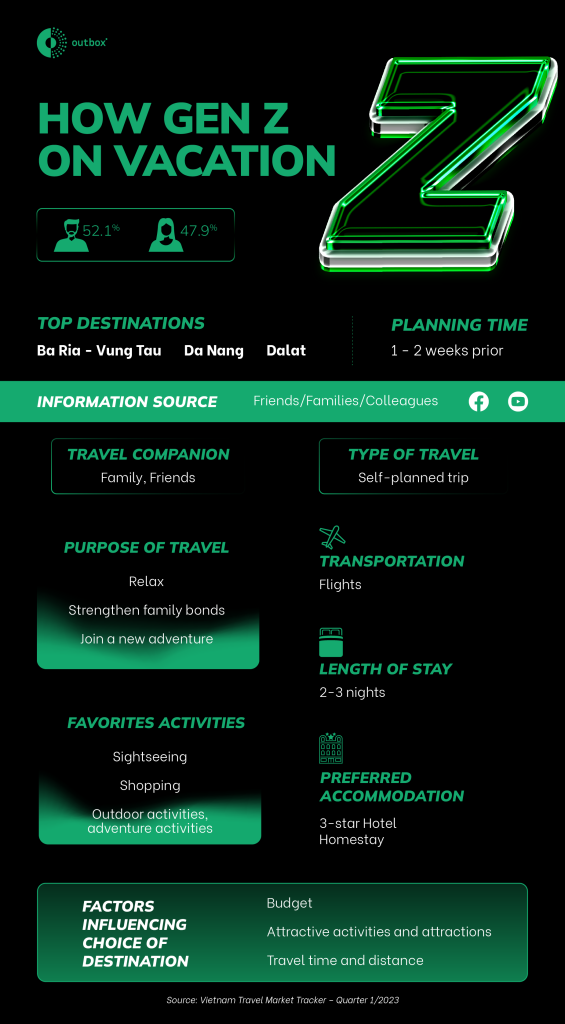As the youngest generation of travelers, Generation Z is quickly becoming an important segment of the tourism industry. With their unique values and characteristics, capturing their demand can be challenging. To do so, it’s essential to understand this generation’s psychology and behavioral patterns. While they share some similarities with millennial travelers, Gen Z travelers have their own distinct differences.
Who is Gen Z?
Generation Z refers to individuals born between 1997 and 2012. They are often referred to as Gen Z or Gen Zers and are considered the next generation of travelers in the travel & hospitality sector.
Despite not having as much disposable income as older generations, Gen Z travelers are likely to return to destinations that offer good value for money. According to the Vietnam travel market tracker Q1/2023, they prefer to plan their own trips and enjoy exploring new destinations. Technology plays a significant role in how they discover new places and book their trips.

What sets Gen Z apart?
Compared to baby boomers, Gen Xers, and even millennials, there are several key differences that set Gen Z apart. Here are 3 main characteristics of Gen Z travelers:
Tech-savvy
They are tech-savvy and rely on social media. Besides receiving information from friends and family for travel recommendations, Gen Z also likes to search on social media. Facebook and Youtube are their 2/3 top sources of information. As word of mouth from friends/family/collages being their number one source, Facebook and Youtube are their second and third choice.
Value for money
Gen Z travelers place a high value on getting the most for their money when choosing a travel destination. While budget is an important consideration for them, they also take into account other factors such as the availability of attractive activities and attractions, as well as the travel time and distance to the destination.
Unique accommodations and experiences
Gen Z travelers are willing to spend money on unique accommodations and experiences that allow them to fully immerse themselves in their travel destination. They often opt for 3-star hotels or homestays, where they can stay for 2-3 nights and enjoy a more authentic and personalized experience.
Their main reasons for traveling include relaxation, adventure, and strengthening family bonds. Some of their favorite activities include sightseeing, shopping, outdoor activities, and adventure activities.
In conclusion, Generation Z represents a distinct group of travelers with their own set of values and characteristics. Understanding their needs and preferences is crucial for capturing their demand in the tourism industry. As this generation continues to come of age and gain more economic independence, they are likely to play an increasingly important role in shaping the future of travel. Their distinct approach to travel and their willingness to embrace new experiences make them a key demographic for travel service providers to consider.



